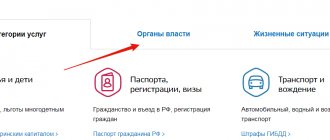Home › Articles ›
Buying an apartment in a building under construction is a risky business. The buyer risks not only money, but also time. Often the developer’s simple promise “the property will be put into operation soon” turns into infinity. That is why the termination of the DDU in most cases occurs at the initiative of the shareholder.
Termination of DDU by agreement of the parties
This procedure does not require compliance with the mandatory terms of the contract. Counterparties have the right to independently agree on the method and timing of exercising their legal rights and obligations. The main thing is that the termination of the DDU agreement occurs by mutual agreement of the parties.
A shareholder may go to court if:
1) Construction of the house was suspended or frozen indefinitely. 2) The design documentation of the facility has changed significantly. All changes to the design documentation that relate to deviations from the original parameters of the construction project must be re-approved by the developer. A participant in shared construction has the right to demand termination of the shared construction agreement if such changes are significant, violate his rights and affect his interests. 3) The developer who has violated the terms of the DDU agreement refuses to return funds or fulfill established obligations.
4) The purpose of non-residential premises in an apartment building has changed. 5) Other cases provided for by law.
The law does not provide an exhaustive list of reasons for going to court. This means that the shareholder has the right to act based on the terms of the DDU agreement.
Claim to the developer for the return of money to the shareholder
What to do if the developer does not return the money?
Very often there are cases when the contractor evades fulfillment of obligations and refuses to return contributions to the customer in case of violation of contractual obligations. In this case, the shareholder is recommended to file a claim addressed to the violator with a detailed statement of all the circumstances:
- period for signing the contract (day, month, year);
- when the DDU was terminated;
- the date when he demanded a refund and other circumstances.
Before filing an application with the court, the plaintiff must:
1) Send the developer a notice of unilateral refusal to fulfill the contract due to a delay in construction and termination of the DDU agreement. 2) Determine the cost of the claim. An individual can recover from the developer: - the cost of the apartment; — interest for the use of funds; — interest for violation of the deadlines for the return of funds that were credited to the developer’s bank account as the price of the DDU agreement; - compensation for moral damage. The amount of compensation is set at the discretion of the plaintiff, but the final amount will be determined during the court hearing. It is worth considering that legal entities and individual entrepreneurs cannot claim compensation for moral damage. 3) Send a copy of the claim to the defendant (developer).
Unilateral termination of the contract by the shareholder
If the house is not put into operation on time or the apartment has significant deficiencies, the shareholder has the right to terminate the DDU agreement unilaterally. However, desire alone is not enough; the buyer must comply with the legal procedure for terminating the transaction.
First of all, the shareholder needs to send a claim to the developer to terminate the contract. The text of the document indicates: 1) The reason for termination of the contractual relationship (with reference to the legislative norm). 2) Requirements of the applicant (shareholder). 3) Bank details to which the developer must return the funds.
The claim must be sent to the legal address of the company by registered mail with notification or personally bring it to the office. The notification must be accompanied by a list of attachments - a document that lists and describes the legally important characteristics of the letter. If the notice is handed over personally to a representative of the construction company, it is recommended to insist that the person who receives the correspondence put the incoming number, date and signature on the second copy of the appeal.
The day of termination of the DDU agreement is considered the day the claim is sent (grounds: Part 4, Article 9 of Law No. 214-FZ). From this moment on, the developer is obliged to return to the counterparty all funds, which are the contract price and interest for use, within 20 days.
If the developer refuses to transfer funds in a timely manner, the shareholder has the right to go to court. To do this, he will need to collect the necessary package of documents: 1) A copy of the DDU agreement 2) Documents confirming the fact of payment of funds under the agreement 3) A copy of the claim to the developer (the plaintiff also needs to confirm the fact of transfer of this document. If the claim was sent by registered mail, you must attach a postal notification on receipt of correspondence. If personally handed over to a company employee - incoming number and registration date) 4) The developer’s response to the claim (if any) 5) Documents that confirm (justify) the shareholder’s claims (defective statement, conclusion of an expert commission on the presence of deficiencies) 6) Calculation of interest for the use of money and for violation of deadlines for the return of funds 7) Receipt for payment of state duty. In accordance with paragraph 3 of Art. 333.36 of the Tax Code of the Russian Federation, state duty is paid if the cost of the claim exceeds 1 million rubles
The DDU agreement will be considered terminated if the court sided with the plaintiff.
Termination of DDU
Termination of an equity participation agreement (DPA)
By contributing funds as their share to reimburse financial expenses that are inevitably associated with the construction of an apartment building or any other real estate object, a citizen or legal entity ultimately intends to receive ownership of their share of the constructed real estate object.
However, paying money for “meters” that have not been put into operation is possible only in one of three available ways (clause 2 of article 1 of Federal Law-214 of December 30, 2004):
- by purchasing a housing certificate from the owner or holder of a land plot;
- through membership in a housing construction or savings cooperative;
- concluding a written agreement with the Developer for shared participation (DPP).
It happens that it is not possible to wait for the house under construction to be put into operation, but the existence of contractual relations with the Developer must be terminated. How to do this legally?
In contrast to the contractual relations of the work, under which the customer at any time, refusing to fulfill the contract, will be obliged, in addition to payment for the work already performed by the contractor, to also repay the losses caused to the Contractor by early termination of the contract, by terminating the contract early for good reasons, the shareholder does not compensate the developer actual expenses incurred by him.
In addition, a participant in shared construction does not have the right, without good reason, at any time, before signing the acceptance certificate for the constructed facility, to refuse further execution of the DDU!
What then should a shareholder do if he wants to terminate the relationship under an equity participation agreement if the Developer fulfills its obligations in good faith?
In this case, the equity holder has two options:
- try to conclude a bilateral agreement with the Developer, under which the previously concluded DDU will be terminated by mutual agreement;
- find someone to whom you can transfer your rights as a shareholder under an assignment agreement.
Features of DDU
With the exception of the specific features provided for by Federal Law 214, the DDU is very similar to a regular construction contract, under which one party, called the developer, guarantees the other party (participant in shared construction) to create a multi-apartment real estate property within the period specified by this agreement.
There are special requirements for such an agreement in order for it to be considered properly concluded:
- it must be drawn up in writing and registered with Rosreestr;
- specific definition of the subject of the contract;
- commissioning period;
- contract price;
- methods by which the Developer will fulfill its obligations;
- warranty period for the subject of the contract (usually at least 5 years).
Methods for terminating the DDU
In total, the shareholder and the Developer have three legal ways, provided for in Article 9 of Federal Law-214, according to which they have the opportunity to refuse share participation ahead of schedule, i.e. before the transfer of ownership of the commissioned construction project to the participant in shared construction:
- unilaterally, at your own request, terminate the DDU;
- enter into a bilateral agreement with the developer;
- go to court, and there, by its decision, terminate the contractual relationship.
At the same time, the Developer has only one opportunity to terminate the DDU unilaterally: if the shareholder violates the contractual obligations to pay as provided for by law (Article 5 of Federal Law-214).
When can you terminate a DDU?
Logically, these obligations can be terminated until their natural completion, i.e. before the transfer of the completed construction project to the shareholder, which is formalized by the bilateral signing of the acceptance certificate (transfer deed).
As soon as the transfer deed is mutually signed, the contractual obligations cease!
Consequences of termination
Regardless of the method and initiator of termination of the DDU, the amount of money paid by the shareholder towards the contract price is subject to mandatory return, and if the initiator of the termination of contractual obligations due to their violation by the Developer is the shareholder, then the Developer additionally compensates for the use of the shareholder’s money.
Moreover, if the initiator of termination is the Developer, interest for the use of funds in the amount of three hundredth of the refinancing rate of the Central Bank of the Russian Federation, which is available on the day of return of the money previously contributed by the shareholder, is paid to the participant in shared construction only if the Developer returns them late, - longer than ten days from the date of unilateral termination of the contract.
ATTENTION! Cancellation (termination) of a contract, similar to its conclusion, is certified by registration of Rosreestr! All other “preliminary” agreements without state registration have no legal significance.
The state duty charged in favor of the state for registering in Rosreestr an agreement on the termination of the DDU with the simultaneous introduction of corresponding changes to the Unified State Register is 350 rubles.
Unilateral refusal to fulfill the DDU by a participant in shared construction
As has already been noted, a participant in shared construction can independently terminate the DDU only in the presence of extenuating circumstances. Among such circumstances, paragraph 1 of Article 9 of Federal Law-214 included the following:
- delay by the Developer of two months in transferring to the shareholder according to the relevant deed the constructed facility, the delivery date of which is fixed in the contract;
- allowing during construction significant deviations from the quality requirements of the constructed property;
- violation of the rules for ensuring the fulfillment of obligations under the guarantee agreement with the bank, expressed in the failure to notify the participant in shared construction, at least a month in advance, about the bank’s early termination of the guarantee;
- other circumstances that are indicated in the law or directly in the DDU.
Moreover, another condition for unilateral termination by the shareholder of the contract will be the Developer’s failure to comply with the following requirements of the shareholder when handing over to him a shared construction project that does not meet the conditions of the DDU:
- free elimination of deficiencies within a period recognized by law as reasonable;
- reduction of the contract price in proportion to the shortcomings of the delivered object;
- reimburse independently incurred expenses to eliminate deficiencies in the transferred square meters.
When a DDU agreement is considered terminated unilaterally
Unlike a mutual agreement that is subject to registration with a government agency, a unilateral refusal under the conditions provided for by law does not require such a procedure, and becomes a legally accomplished fact from the day the notice of termination is sent by registered mail with an inventory.
Unilateral refusal to execute the DDU by the Developer
The law provides for the only condition for unilateral termination of the LDU by the Developer - failure by the shareholder to fulfill financial contractual obligations.
According to Art. 5 FZ-214, violation by a participant of shared construction of the deadlines for making payments under the contract must be systematic, i.e. meet one of the following criteria:
- the deadline for making mandatory payments under the established installment plan under the DDU must be violated during the year more than three times;
- For at least two months in a row, the shareholder does not pay a one-time payment under the DDU.
Consequences of late payments
There are two such unfavorable consequences for the shareholder:
- payment of a penalty for each day of unfulfilled obligation in the amount of three hundredth of the bank refinancing rate multiplied by the amount of debt;
- termination of the DDU by the Developer.
In the first case, liability for the shareholder inevitably arises. In the second - at the discretion of the Developer (he can go to a meeting and additionally provide the shareholder with an installment plan). If the Developer decides to terminate the relationship, he is obliged to follow the following procedure:
- in writing, by registered mail, at least thirty days before the day of the expected termination of the DDU, warn the shareholder of your intention, while simultaneously reporting any existing violations of the contract;
- if the shareholder’s demand is not fulfilled, and he received the Developer’s notification, or did not receive it due to non-residence at the specified postal address, or refused to receive it, re-send, now by registered mail, enclosing the appropriate inventory, a notice of termination of the DDU.
From the date of sending the notice of termination of the DDU, it is considered terminated. From this moment on, the developer begins to count down the ten-day period for returning the amount of money contributed by the shareholder.
Termination of DDU by agreement of the parties
In this case, both the Developer and the shareholder have the right, but such a right does not correspond to the reciprocal obligation, to initiate the conclusion of an agreement on the termination of the DDU.
The scheme for concluding an agreement is as follows:
- Send a written message expressing your desire to enter into an agreement to terminate the contract by mutual consent.
- Having received consent, set a date and place for concluding the termination agreement.
- Mutually determine the procedure for returning the deposited amount of money to the shareholder.
- Draw up in writing, including the conditions for the return of the amount of money to the shareholder, and sign on both sides an agreement on the termination of the DDU.
- Register the agreement, paying the state fee, in Rosreestr.
What is needed to register the Agreement?
Both parties do not need to come to Rosreestr; one person comes. But, in addition to the agreement signed by the equity holder and the Developer on the termination of the DDU, you will need to provide:
- shareholder's passport;
- payment for state duty;
- Other documents may be required.
Attention! If the Developer goes to Rosreestr, the shareholder is recommended to keep for himself:
- a copy of the termination agreement;
- a receipt from the Developer that the obligations to him have been fulfilled by the Shareholder in full.
Termination of DDU through court
The law provides for four possible circumstances, based on which the shareholder may not send any notices to the developer, but immediately file a claim with the judicial authority; all these circumstances are associated with significant deviations by the Developer from the terms of the concluded agreement.
Thus, in court, the shareholder has the right to demand termination of the DDU if:
- it clearly follows that the construction of this real estate object planned in accordance with the DDU, which includes the share of the participant in shared construction, has been terminated or suspended;
- there were serious violations of the terms of the design documents for the real estate object under construction, expressed in the fact that the size of the premises specified in the contract was exceeded by more than 5% (to a lesser or greater extent;
- the purpose of non-residential premises and common property constituting the property has changed;
- the law or the DDU establishes other significant circumstances that are violated by the Developer.
How to Prepare for Trial
First of all, the claim must be correctly filed in court at the place of registration of the Developer.
To do this, in addition to the jurisdiction and mandatory details of the Plaintiff and the Defendant, it requires:
- refund of payments made towards the price of the DDU;
- payment of interest for the Developer’s use of these funds;
- compensate for losses associated with the need to terminate contractual relations due to the fault of the Developer.
The claim signed by the shareholder must be accompanied by:
- a copy of the application for the Developer;
- a copy of the remote control agreement;
- documentary evidence of a significant violation of the terms of the contract by the Developer;
- independent calculation of interest, material and moral damage;
- receipt of payment of the litigation fee.
If it is difficult to independently determine the existence of significant violations by the Developer of the terms of the DDU, the shareholder can always order a special construction examination, attributing, if the claim is satisfied, the costs to the Developer’s account.
The procedure for termination of the contractual agreement by the developer
First of all, the developer must send a notification letter to the counterparty, in which he expresses his demand for urgent repayment of the debt on mandatory payments.
The shareholder is obliged to comply with the developer’s requirements within 30 days from the date of receipt of the letter. After this period, it is possible to terminate the DDU agreement unilaterally at the initiative of the developer.
After the DDU agreement has been terminated, the shareholder is returned all the money that has been paid to him to date.
How to get out of shared construction?
The law provides two blocks of grounds on the basis of which the customer has the right to apply to the judicial authorities to terminate the remote control agreement.
The first implies unilateral termination of the contract in situations where the performer:
- delays delivery of the project for two months or more;
- violated the contract, made shortcomings;
- terminated the guarantee and did not restore it within 15 days.
The second applies in cases where the developer stopped construction for unknown reasons, without notifying the shareholder, changed the design documentation, or the building significantly changed its purpose. Such cases oblige the developer to return the money to the shareholder. If you receive a negative response to your claim letter from the developer. Read the link to find out how to answer it correctly.
Registration of termination of DDU
Payment of funds to the shareholder is possible only after registration of termination of the DDU agreement. Specialists of the law firm “Silkin and Partners” recommend that you approach the procedure for terminating a DDU agreement with special care and caution. The fact is that after the contract is terminated on the initiative of the shareholder, it will be quite difficult to recover the money paid from the developer. This is especially true for situations where the developer plans to declare bankruptcy.
From July 1, 2021, direct transfer of funds to the developer is prohibited. Now money for an apartment in a building under construction is deposited into an escrow account. This algorithm for conducting financial calculations guarantees the safety of the shareholder’s material investments. The funds are “frozen” in a special escrow account until ownership is registered.
Termination of an agreement initiated by the shareholder: reasons and procedure
The Law on the Protection of Consumer Rights provides for the ability of the shareholder to terminate the contract at any time before the delivery of the property. However, before concluding a DDU, the shareholder is strongly recommended to carefully study Article No. 9 of Federal Law-214. Here are the reasons on which it is possible, at the initiative of the shareholder, to terminate an agreement with a developer who has not fulfilled the obligations given to the former.
The main reasons why the shareholder has the right to terminate the contract and demand the return of money under the DDU, according to the law:
- Violation of quality requirements for the construction project. If, during acceptance of an apartment, for example, defects or deficiencies in the work are discovered, the shareholder has the right to demand that the defects be eliminated or the amount of payment for the object reduced to eliminate the defects. If you refuse, terminate the agreement and demand your money back.
- Failure to comply with mandatory requirements, deviation from the standards and declared characteristics of the new building. The windows are located without access to the sun, the elevator is inconvenient, etc. – a good reason for terminating the DDU.
- Late delivery deadlines. As practice shows, this is the most common reason for breaking a contract. If, after 2 months after the end of the period specified in the agreement, the shareholder has not received the keys to the apartment, he has the right not only to terminate the agreement, but also to demand payment of a penalty under it.
You can also demand termination in rare cases when the developer’s guarantee agreement with a banking or insurance company has expired, and a new agreement has not been concluded, and the equity holder has not been informed about this (grounds in Part 3 of Article 15 of Federal Law No. 214).
A claim for termination of the DDU is drawn up, which the shareholder sends to the developer’s lawyer. You should ensure that the developer's representative signs for receipt of the document.
Collection of penalties from the developer
Delays in commissioning happen quite often. In most cases, the developer acts proactively; he sends all participants in shared construction a notice of postponing the date of delivery of the project and invites them to sign an additional agreement.
You should not agree to the Developer’s conditions. Signing an agreement is the shareholder’s right, not an obligation. Refusal to comply with the developer's requirements does not affect the period of transfer of housing. This add. the agreement is beneficial only to the developer; it relieves the construction organization of responsibility for late commissioning of the facility.
Termination of the DDU due to failure to transfer the house on time requires payment of a penalty from the developer.
There are several ways to collect penalties:
1) Through peaceful negotiations with the developer (pre-trial settlement) 2) Through courts of general jurisdiction 3) Through the Arbitration Court.
You can try to collect a penalty from the developer yourself, without involving a lawyer. To do this, first of all you need to correctly calculate its size.
It should be noted that Resolution No. 423 was in force. In accordance with this document, interest for the use of funds upon termination of the equity participation agreement was not accrued from April 3, 2021 to 01/01/2021. This legislative provision does not deprive the shareholder of the opportunity to terminate the DDU agreement unilaterally if the delivery date of the object is delayed by more than two months.
Resolution No. 423 also applies to the calculation of penalties upon termination of the contract. Using the penalty calculator, you need to pay attention to this temporary adjustment.
If the shareholder has doubts about the solvency of the construction organization, he has the right to use the service of buying out the penalty.
How to recover money from an unscrupulous developer through court?
If the shareholder has previously paid part of the amount, then he has the right to demand a refund upon termination of the DDU. According to the obligations, the contractor must transfer the amount to the customer no later than 20 days after the termination of contractual obligations. This takes into account the period of 10 days for the court decision to enter into force. The developer also undertakes to compensate interest for the use of the funds raised by the shareholder. The amount of the fine is set by the Central Bank of the Russian Federation. If the shareholder is an organization, then the interest payment is made in a single amount, but if it is an individual, then the amount is doubled.
How to force the developer to return the money?
There are several ways to force the developer to return money under a shared construction agreement, the easiest of which is an agreement between the parties to terminate the contract, which specifies all the conditions for the return of money.
The second way is through the court - if, for example, the developer violates deadlines or reduces the declared area or design documentation. In such cases, you can safely go to court. But before you do this, you need to follow a certain order:
- Drawing up a complaint to the developer;
- Drawing up a statement of claim (in parallel, it is necessary to submit complaints to regulatory authorities). If you need to write a response to a statement of claim for consumer protection. Read how to do this at the link;
- Waiting for a court decision;
- After a court decision, obtaining a writ of execution and forced collection;
The third way is to withdraw from the contract in accordance with the consumer protection law.
USEFUL: read recommendations for filing a lawsuit against a developer
Termination of DDU with mortgage
Unilateral termination, which is burdened with a mortgage loan, without compelling reasons, is primarily disadvantageous to the equity holder himself. The complexity of the situation lies in the fact that the DDU agreement is on the balance sheet of the collateral in the bank. Thus, the debtor has no right to perform any legal actions with this document.
However, if the developer grossly violates the terms of the contract, the counterparty has the right to initiate a procedure for terminating the contractual relationship.
To do this, you must: 1) Notify in writing the bank branch where the mortgage loan was issued of your intentions. 2) Provide the bank with evidence of violation of the terms of the DDU agreement. 3) Write an application to the bank branch, requesting recalculation of interest in case of early repayment of the loan. 4) Send a notice to the developer about the unilateral termination of the DDU agreement by the shareholder.
The legislation of the Russian Federation does not contain direct instructions that spell out a clear procedure for terminating a DDU agreement with a mortgage. However, the losses incurred by the parties to the transaction fall on the shoulders of the person responsible for the situation. Thus, the developer who violated the terms of the contract compensates the losses of the banking organization.
Legal can provide a wide range of services regarding equity participation agreements. Our lawyers can advise you on any issues.
Having extensive judicial experience, we can carry out the entire range of measures to terminate a contract through the court. We are ready to take on the entire range of work: from consultation to receiving your funds.










